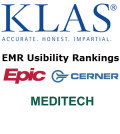Healthcare IT Staff Shortages
According to a new survey from the College of Healthcare Information Management Executives, there are more shortages of IT staff than two years ago. Of the 163 CIOs who responded to the survey, two-thirds reported shortages that were up 59% from 2010. The survey cited shortages in community hospitals and multi-hospital settings.
Most of the CIOs indicated EMR (electronic health record) and other workflow implementations were top priority. Other high priorities where IT infrastructure support and other support needs.
The increase in demand for qualified Healthcare IT personnel isn’t a big surprise. Initiatives such as EMR implementation for meaningful use, cloud computing, hospital mergers and switching to ICD-10 are driving a lot of the growth and need.
A report by Wanted Analytics indicated that the most sought-after skill by healthcare employers is EHR training. With so many new EMR/EHR systems being implemented, there has been a strain on finding qualified and experienced staff to implement, maintain and manage these systems. This demand also extends to the vendors and solution providers.
Some of these difficulties are a result of inadequate training facilities and programs to educate new potential applicants. The current demand is outpacing the supply, so CIO need to ‘widen the net’ and look outside the healthcare industry to trainable candidates.
Once a qualified candidate has been hired and training, CIOs will need to focus on employee retention. Eight-five percent of CIO indicated that employee retention was a major concern. Clinical informatics systems are very complicated and having experienced staff that is knowledgeable about the idiosyncrasies, infrastructure and upgrades is crucial for business operations to run smoothly.
The business and nature of Healthcare Information Systems often requires over a year or more of working with a system to become proficient at maintaining all of the different aspects of management.
A new support workers needs to learn:
- the business
- the software
- other systems the clinical system integrates with
- troubleshooting
- HL7, DICOM and other communication protocols
- hardware infrastructure
- upgrades and the downstream/upstream impacts
- ….to name a few
Meanwhile, in a report released in March by PwC, 48 percent of providers said they were in need of IT talent. In that report, lack of individuals trained in health IT, as well as the lack of faculty to train such individuals, was a barrier to clinical informatics programs at different facilities.
Staff retention is top-of-mind for CIOs, with 85 percent saying they were worried about keeping their talent. According to the survey’s authors, current retention concerns likely have been bolstered by the ever-growing number of IT projects for healthcare facilities.
Related Articles:









You must be logged in to post a comment Login